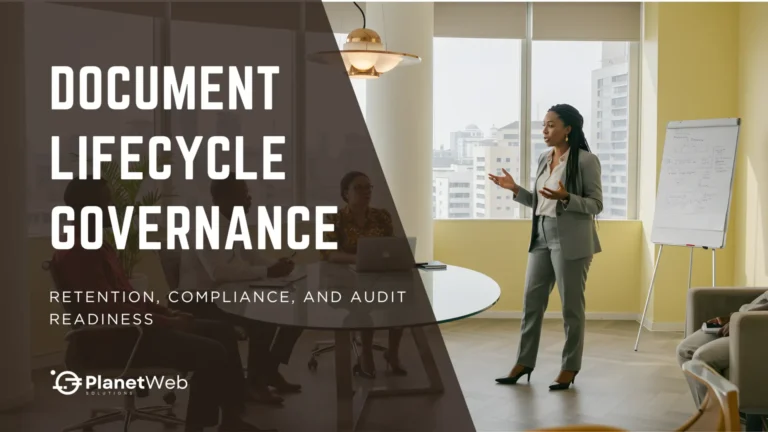Why Nigerian Businesses Are Switching to Green IT (And How Much They’re Saving)
Power cuts. Generator bills. Old laptops piling up in storage rooms. Sound familiar?
If you’re running a business in Nigeria, you know the drill. Every month brings another diesel invoice that makes you wince. Your servers overheat during Lagos traffic jams. And somewhere in your office, there’s probably a graveyard of outdated IT equipment collecting dust.
Here’s what’s changing: smart Nigerian businesses are discovering that adopting Green IT in Nigeria isn’t about tree-hugging. It’s about survival, competitiveness, and putting serious money back in their pockets. More importantly, it’s about finding generator alternatives for Nigerian businesses and reducing IT power costs in Nigeria.
🌍 Why Green IT Matters in Nigeria
Before looking at solutions, it’s important to understand the scale of the challenge.
Nigeria generates over 290,000 tonnes of e-waste every year. That’s not just an environmental issue — it’s lead, mercury, and cadmium leaking into our communities. At the same time, diesel generators contribute to over 70% of urban air pollution in cities like Lagos, affecting employees and customers alike (World Bank). For many SMEs, the rising cost of diesel and skyrocketing office electricity bills in Nigeria make generator alternatives not just desirable, but essential.
Now put this against the backdrop of Nigeria’s tech sector, valued at over $3 billion. The opportunity to rethink how we power, manage, and dispose of IT systems is massive.
Green IT in Nigeria means:
- Building systems that keep running when the grid fails
- Staying competitive as global partners demand ESG compliance
- Creating IT infrastructure designed for Nigeria’s unique environment
While competitors scramble during power cuts, businesses with resilient, energy-smart IT stay productive. That’s a real advantage.
💰 The Business Case for Green IT in Nigeria: Cutting IT Power Costs and Boosting Savings
Money is often the starting point for any business decision, and Green IT delivers tangible savings.
Companies that implement Green IT practices typically cut 20–40% of their IT energy costs. For a mid-sized business spending ₦2 million monthly on IT power, that’s ₦400,000 to ₦800,000 back in the budget every month. This is clear evidence of real business energy savings in Nigeria.
But the value goes beyond lower bills. Equipment lasts longer when it isn’t battered by constant surges and outages. Teams remain productive instead of waiting for servers to reboot after a power cut. The result? Less downtime, fewer repair costs, and more revenue-generating hours.
Sustainability also boosts competitiveness. International clients increasingly demand ESG compliance, and Nigerian firms that can show evidence of sustainable practices win trust faster. Investors are paying attention too, favoring companies that can demonstrate long-term resilience.
And don’t forget talent. Younger professionals want to work with businesses that look ahead, not back. A clear sustainability commitment makes you stand out in a tight labour market.
Finally, regulation is coming. The NDPA and global ESG standards will soon shape compliance requirements. Those who prepare now will glide through the transition; those who wait will scramble.
🚀 Key Sustainable Business Practices in IT
Green IT becomes real when businesses put ideas into practice. Here are some of the most impactful and realistic steps Nigerian firms can take today.
☁️ Cloud Computing for Sustainability
Moving to the cloud is often the fastest win. Instead of running servers 24/7, whether you need them or not, cloud services let you pay for exactly what you use.
Why SMEs choose the cloud:
- No upfront capital for servers
- Reduced need for backup power
- Maintenance is handled by providers
- Scales up or down with your business
A Lagos logistics firm saw downtime drop by 80% and power costs fall by 30% after migrating. More importantly, they no longer worried if their generator could keep servers alive during long outages. Cloud adoption not only reduces downtime — it also helps reduce IT infrastructure costs in Nigeria by eliminating the need for physical servers.
For Nigerian SMEs, this combination of cost savings, reliability, and flexibility makes the cloud the easiest entry point to Green IT. Learn more about our Enterprise Document Management in Nigeria services that complement this shift.
💻 Virtualization and Digital Workflows
Beyond the cloud, virtualization squeezes more performance out of fewer machines. Running multiple virtual servers on one physical machine means less hardware, lower cooling needs, and less backup power.
Digital transformation multiplies the impact. Tools like digital signatures, e-billing, online HR systems, and cloud storage cut down printing and paper use.
One Abuja consultancy reduced 80% of its paper use in just six months. The money saved on paper and storage more than covered the cost of their digital tools.
⚡ Renewable Energy for IT Loads
Reliable power remains one of the biggest challenges for Nigerian businesses. Renewable energy — particularly solar — offers a practical path forward.
With Power-as-a-Service (PaaS) models, companies can pay monthly for clean solar power without a massive upfront investment. Many SMEs in Nigeria are now turning to solar power for their business needs as a clean, reliable alternative to diesel generators.
The smart approach is hybrid:
- Solar during the day
- Grid power when stable
- Generator only as a backup
Many Lagos office buildings now dedicate rooftop solar to IT equipment, ensuring servers and networks run on consistent, clean power when demand peaks.
🗄️ Responsible E-Waste Management
Disposing of IT equipment responsibly is just as important as powering it efficiently. Nigeria’s growing e-waste problem isn’t just unsightly — it’s toxic. Old devices leak hazardous materials like lead and cadmium into communities.
Smart businesses are responding with better procurement policies:
- Extending refresh cycles from 3 years to 4–5
- Using buy-back or refurbishment programs
- Partnering with certified recyclers who safely handle disposal
Some recyclers even pay for usable equipment, turning waste into recovered value instead of liability. Partnering with certified providers ensures proper e-waste disposal in Nigeria, protecting both people and the environment.
🏠 Remote Work and Hybrid Tools
Sustainability isn’t only about energy or hardware. The way people work also matters. Remote and hybrid models cut commuting, reduce office energy use, and expand your access to talent.
Tools like Zoho Workplace, Microsoft Teams, and Google Workspace make collaboration seamless. Beyond sustainability, the benefits include:
- Lower real estate costs
- More satisfied, flexible staff
- Ability to hire outside major cities
Remote work doesn’t just improve flexibility — it also helps cut office electricity bills in Nigeria by reducing reliance on physical office spaces. For many Nigerian firms, hybrid work that began during COVID has become a permanent advantage, not just a temporary solution.
🌟 Opportunities in Green Data and Infrastructure
The bigger picture is about more than individual company practices. Nigeria is well-positioned to become a hub for green data centers in Africa. These facilities, powered by renewable energy and advanced cooling, can slash emissions by 70% or more compared to traditional centers.
Local innovators are already showing what’s possible:
- Wecyclers built a thriving business around e-waste collection and recycling.
- Arnergy makes solar power accessible to businesses through flexible financing.
- Rensource helps SMEs reduce reliance on diesel by providing renewable alternatives.
These companies prove that sustainability isn’t just good for the environment — it’s already profitable in Nigeria.
📋 How to Get Started with Green IT in Nigeria
Transitioning to Green IT doesn’t have to feel overwhelming. A step-by-step approach helps businesses see results quickly while building a long-term strategy.
- Audit your IT setup – measure energy use, equipment inventory, and running costs.
- Identify quick wins – move email and file storage to the cloud. These small steps are proven ways for SMEs wondering how to cut office electricity bills in Nigeria.
- Train your team – explain why the shift matters and how they can help.
- Set e-waste policies – partner with certified recyclers for proper disposal.
- Explore renewables – consider solar for IT loads, starting with PaaS models.
- Set measurable goals – e.g., cut IT energy by 25% in 12 months, recycle 70% of replaced devices.
Common challenges:
- Budget constraints → begin with projects that pay for themselves quickly
- Staff resistance → communicate benefits clearly and provide training
- Partner selection → research carefully and start with pilot projects
🎯 The Future of IT Sustainability in Nigeria
Looking ahead, the case for Green IT is only getting stronger. Businesses that act now will enjoy:
- Lower operational costs
- Protection from fuel and power volatility
- Stronger brand reputation
- Global competitiveness
- Access to markets requiring ESG compliance
The real takeaway is this: the businesses succeeding with Green IT in Nigeria don’t see it as a cost center. They see it as a strategic investment — one that reduces IT power costs, delivers real business energy savings, and strengthens competitiveness in an unpredictable market. In Nigeria’s tough business climate, sustainability isn’t just good ethics — it’s good business.
For industry-specific strategies, explore our Managed IT Services for Oil & Gas to see how sustainability applies in the energy sector.
🚀 Ready to take the next step? Green IT can transform your operations, cut costs, and boost resilience. Follow PlanetWeb’s insights on technology and sustainability trends, or contact us today to design and implement Green IT solutions tailored to your business needs.
We know Nigerian businesses have specific questions about sustainability and IT. Here are some of the most common queries answered:
❓ Frequently Asked Questions (FAQ)
This FAQ covers practical issues Nigerian businesses face when adopting Green IT — from cutting electricity bills to finding generator alternatives and managing e-waste. These answers are tailored to local realities and common pain points.






